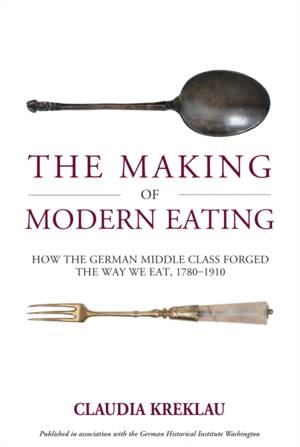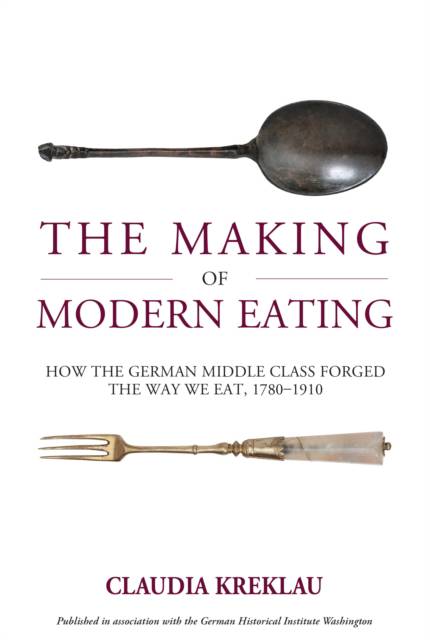
- Retrait gratuit dans votre magasin Club
- 7.000.000 titres dans notre catalogue
- Payer en toute sécurité
- Toujours un magasin près de chez vous
- Retrait gratuit dans votre magasin Club
- 7.000.0000 titres dans notre catalogue
- Payer en toute sécurité
- Toujours un magasin près de chez vous
The Making of Modern Eating
How the German Middle Class Forged the Way We Eat, 1780-1910
Claudia KreklauDescription
Nineteenth-century Germany invented the way we eat. Women experimenting in households, French chefs fleeing guillotines, and one of the most rapidly evolving food industries in the world forged recognizably modern eating practices between 1780 and 1910. While central Europeans merely aimed to survive long winters, experiment with translated recipes and curious ingredients from abroad, and embrace the conveniences of industrial life, their consumption habits and cooking practices created a new product landscape. Throughout this transitional era of history, individuals visibly communicated their self-understandings through food. This study of central European food modernity and middle-class identity aims to provide fresh footing for discussions in our own changing global era.
Spécifications
Parties prenantes
- Auteur(s) :
- Editeur:
Contenu
- Nombre de pages :
- 368
- Langue:
- Anglais
- Collection :
- Tome:
- n° 32
Caractéristiques
- EAN:
- 9781836953586
- Date de parution :
- 01-02-26
- Format:
- Livre relié
- Format numérique:
- Bibliotheekbinding
- Dimensions :
- 152 mm x 229 mm

Les avis
Nous publions uniquement les avis qui respectent les conditions requises. Consultez nos conditions pour les avis.






